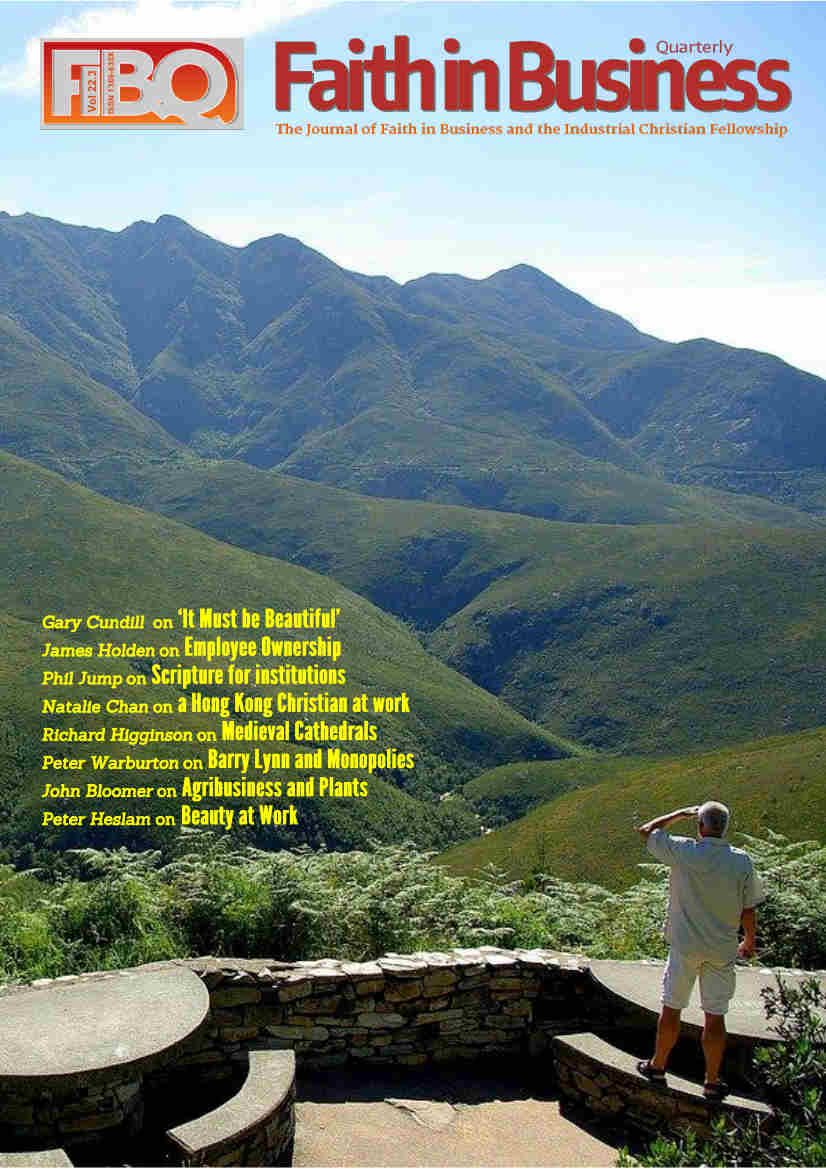Description
In this issue…
FiBQ welcomes new subscribers who joined us during or after the Faith in Business Retreat in Cambridge last month. This issue continues the same theme of finding beauty in our workplaces.
Gary Cundill introduces us to the beauty of mathematics, landscapes, buildings – even tanks – as he considers what makes business beautiful. The businesswoman of Proverbs 31 shows us how to ensure our business can be beautiful as well as profitable. ‘Spires, Shrines, Saints and Sheep’ takes us on Richard and Felicity Higginson’s tour of England’s 42 Anglican Cathedrals. Richard considers their purpose, creation and financing, an inter-generational community project making use of the best that medieval and modern centuries had and have to offer. Peter Heslam continues his series on beauty in the workplace by affirming that we create beauty through what we love, whether it’s Dr Suzuki’s violin teaching or an innate love of nature.
But not everything is pretty in the garden. Peter Warburton in conversation with Barry Lynn takes us on one man’s crusade against globalised commercial power structures that impoverish our freedom, security and prosperity. Dismantling these power structures requires us first to recognise them, and then to legislate against the authoritarianism, inequality and manipulation that these commercial monopolies manifest. Closer to home is ‘The Great Post Office Scandal’, the title of Nick Wallis’ book reviewed by Richard Higginson. It tells the tragic story of sub-postmasters’ financial ruin, and in some cases imprisonment, caused by a malfunctioning IT system. Why did corporate leaders not see the absence of beauty – the ugliness – in what they blindly condoned?
Much more positive in showing that power and wealth can be shared is James Holden’s transfer of his family business into an employee-owned company. He asks whether this could be the way that Christ transforms capitalism. Phil Jump echoes that thought through the BBC’s founding motto, ‘Whatsoever’, referring to Philippians 4.8. Eirene Yeung, speaking to Natalie Chan, describes her journey to faith, and then implementing her faith in a multicultural, multireligious work environment in Hong Kong. A Christian minority, producing beauty through love, powerfully impacted their business environment.
Finally, John Bloomer’s ‘Living in fellowship with plants’ introduces us to a different way of viewing God’s creation. No longer the hierarchy of Aristotle, Augustine and Aquinas with man at the top and minerals at the bottom. All of creation, animal, vegetable and mineral, comes from our Creator, and we humans, and all of these, exist to praise his – beautiful – Name.
The Editors





